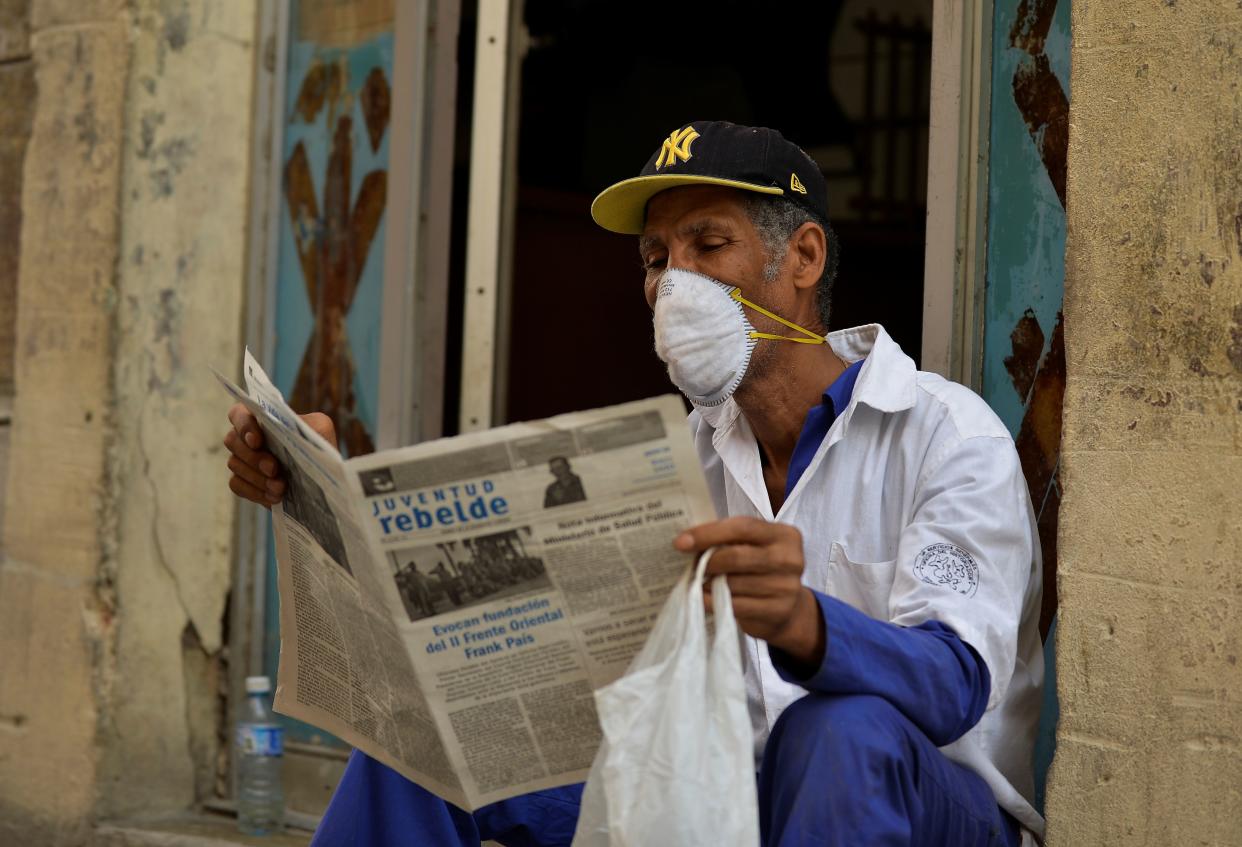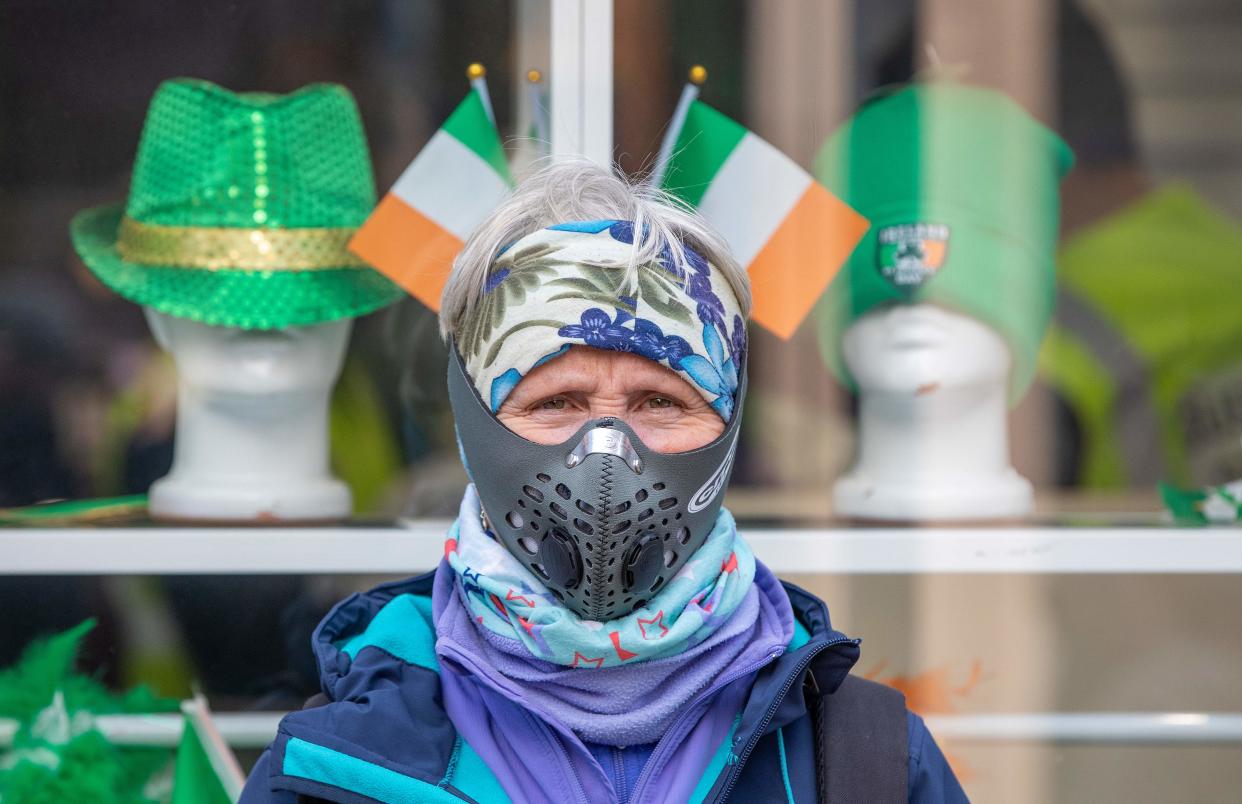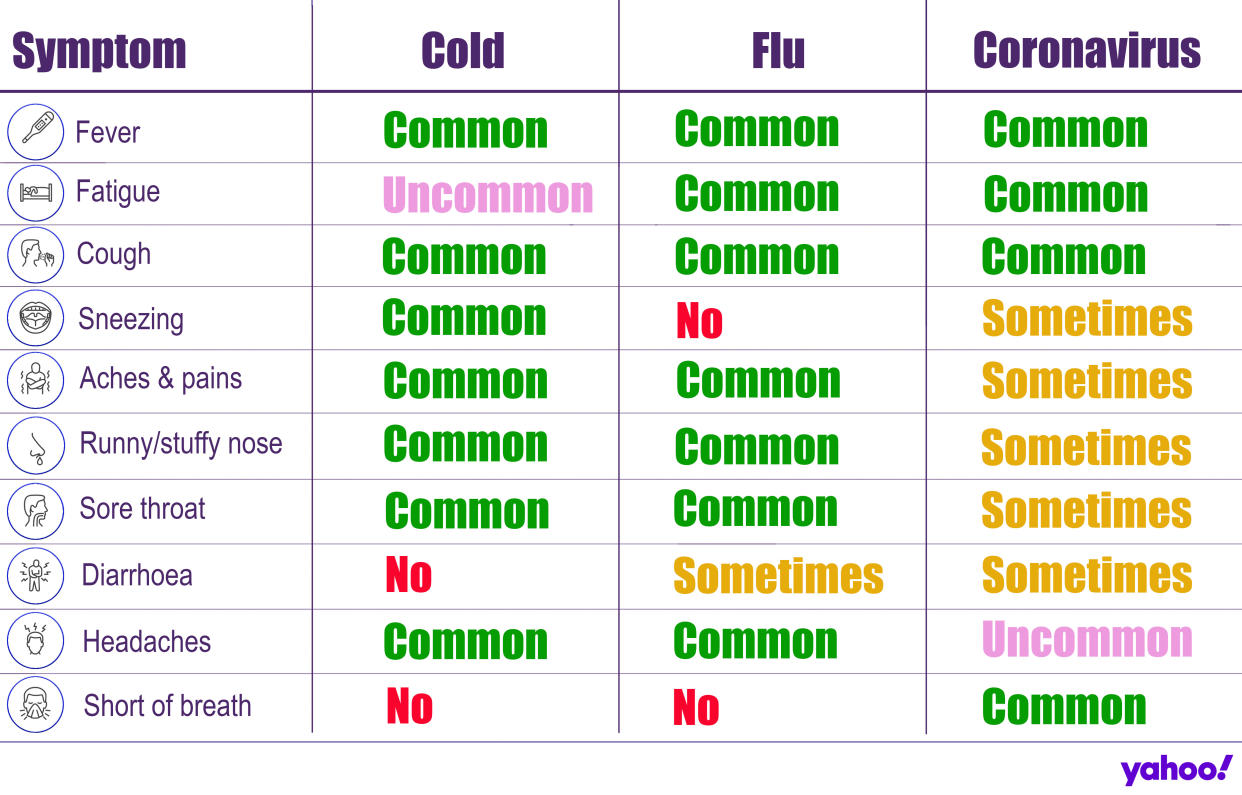Coronavirus cases hit new low in epicentre of the 'pandemic' – does this give hope for the UK's outbreak?

Cases of the coronavirus have reached a new low in the epicentre of the outbreak, data shows.
The new strain, named Covid-19, is thought to have emerged at a seafood and live animal market in the Chinese city Wuhan at the end of last year.
Cases have since been reported all over the world, with more than 127,000 confirmed since the outbreak began, according to John Hopkins University data.
The bulk of these are in mainland China, which has seen over 80,900 people testing positive for Covid-19.
Hubei province – of which Wuhan is capital – has seen the worst of it, with more than 3,000 deaths out of the global 4,717 fatalities.
Latest coronavirus news, updates and advice
Live: Follow all the latest updates from the UK and around the world
Fact-checker: The number of Covid-19 cases in your local area
Explained: Symptoms, latest advice and how it compares to the flu
While it may sound bleak, new data suggests the situation in Hubei could have “curbed”, with just eight new infections being logged in Wuhan on Thursday.
Some experts are cautiously optimistic this may give hope for other “hotspots”, but perhaps only if they mimic China’s “lockdown”.

Covid-19 has been confirmed in more than 100 countries across every inhabited continent.
Of these, 15 nations have had just one reported case since the outbreak was identified.
Many patients have made a full recovery, with more than 68,000 now testing negative for the virus.
Over 29,700 tests have been carried out in the UK, with 596 coming back positive and 10 deaths.
In China, cases have been plateauing since the end of February.
On 9 March, 80,700 incidences were confirmed. This rose by 100 the following day and to 80,900 on 11 March.
Early research suggests four out of five cases are mild, with a minority of patients requiring hospital care.
How can the UK slow its coronavirus Covid-19 outbreak?
China, and specifically Hubei, appears to have got a handle on the situation.
This was not achieved without extreme measures, however.
Wuhan, and its 11 million residents, has effectively been on “lockdown” since the start of the year.
Planes, trains, ferries, subways and buses have all been suspended.
Residents have also been told to work from home.
Non-essential trips to China have long been called off, with international airlines cancelling flights in and out of the country – the second largest economy in the world.
With no “set” treatment for Covid-19, prevention is all the more important.
Wuhan’s residents have been told to wear masks, with research suggesting they may be somewhat effective.
They were also told to avoid crowds, with “social distancing” a key measure in the prevention effort.
Exhibitions, cafés and cinemas have also long been closed in the city.
While it may sound extreme, data suggests it could be working.
“We know from China that aggressive curtailment policies can work to reduce numbers”, said Professor Martin Hibberd from the London School of Hygiene & Tropical Medicine.
“But following China, as Italy is moving towards, is not an easy path for many reasons.”
Italy has more than 12,400 confirmed cases and over 800 deaths.
“I would advocate for the UK to follow a more nuanced approach, such as that being adopted by Singapore, which appears to be effective to at least contain numbers of Covid-19 cases,” said Professor Hibberd.
“In this approach, extensive contact tracing and [Covid-19] testing is able to rapidly identify new cases and fully isolate them.”
Contact tracing involves asking a confirmed patient who they have been in close contact with. These individuals are then contacted for testing.
“When put together with other social distancing measures (that do not include ‘lock down’ of areas – even the schools are open), some confidence is gained that the pandemic can be more controllable and shops can remain open,” said Professor Hibberd.
“To do this, the UK would need to rapidly increase its testing facilities and target to test every possible case, together with other social distancing tools to make this work.
“They could start by testing everyone in parliament to understand the nature of any cases there.”

Other experts, however, are in favour of more extreme measures.
“Now is the time for the UK government to ban large gatherings, ask people to stop non-essential travel, recommend employers shift to home working and ramp up the response,” said Professor Devi Sridhar from the University of Edinburgh.
“The curve can be shifted, but only with government action”.
Ireland, which has 43 confirmed cases, has shut all schools in an effort to combat the outbreak.
This has been met with scepticism, with many pointing out it is largely the elderly who are falling ill.
“I don’t see any convincing evidence that children are driving transmission here [in the UK] and school closures would cause lots of social disruption,” said Professor Jimmy Whitworth from the London School of Hygiene & Tropical Medicine.
“If it was part of a package of reducing gatherings, that would make more sense, but I wouldn’t target schools particularly.”
With many parents having to work, some experts worry grandparents may step in to provide childcare.
“If the closure is not carefully managed then children may spend more time with, and thereby increase the infection risk of, their grandparents, who appear to be more vulnerable to complications from coronavirus” said Dr Thomas House from the University of Manchester.
Professor Keith Neal from the University of Nottingham added different countries are at different stages of the outbreak, with there being no “one size fits all” approach to combat the “pandemic”.
“Schools will close soon for the Easter holidays, which will give some idea of the impact of this measure,” he said.
“The UK should adopt UK-appropriate measures and not give in to the demand for something to be done, otherwise this will result in inappropriate actions at the wrong time.”
With the outbreak ever-evolving, it can be difficult for officials to know what decision to make.
“Each country is making the best call they can on such issues with limited information and there is no ‘correct’ answer here,” said Dr Mike Turner from the Wellcome Trust.
“Even if there were, a ‘correct’ answer today, [it] may not be tomorrow because events are changing so rapidly.”
For now, UK residents who have been diagnosed or are experiencing symptoms after returning from a “high-risk” area are being urged to “self isolate” at home.
What is the new coronavirus Covid-19?
Coronaviruses are a class of viruses, with Covid-19 one of seven strains that are known to infect humans.
Others cause the common cold, as well as severe acute respiratory syndrome (Sars), which killed 774 people during its 2002/3 outbreak.
Most of those who initially caught Covid-19 worked at, or visited, the “wet market” in Wuhan.
Officials confirmed early in the outbreak the virus spreads face-to-face via droplets that have been sneezed or coughed out by a patient.
There is also evidence it may be transmitted in faeces and urine.
Most patients fight off the virus naturally.
In severe cases, pneumonia can come about when the infection causes the alveoli (air sacs) in the lungs to become inflamed and filled with fluid or pus.
The lungs then struggle to draw in air, resulting in reduced oxygen in the bloodstream.
Patients requiring hospitalisation are given “supportive care”, like ventilation, while their immune system gets to work.
As well as social distancing, officials recommend regular hand-washing to ward off the infection.




